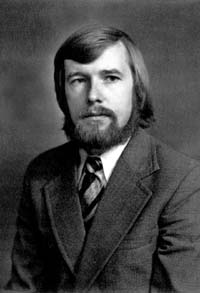Ukrainian National Philharmonic Society hosted a gala concert remembering Yaroslav Vereshchahyn

Soirees commemorating modern Ukrainian composers are infrequent events in Kyiv’s music life, so every such event attracts considerable interest among the local music devotees. Regrettably, the event I am about to dwell upon was not a joyous one, commemorating Yaroslav Vereshchahyn who would have been 55, had he not passed away. The concert was carried out by the Kyiv Camerata under the artistic directorship of Valery Matiukhin. His team remained true to their tradition, propagating modern Ukrainian composers and remaining the sole performer of such works in Ukraine.
Yaroslav Vereshchahyn’s friendly cooperation with the Kyiv Camerata began when the ensemble was first born. The composer wrote countless works for various performers, ranging from small groups to chamber symphony orchestras, but he mainly focused on KC. He also did a number of orchestral arrangements, using both his own compositions and works by other composers. But perhaps this friendly cooperation dates from an even earlier period, when Yaroslav Vereshchahyn and Valery Matiukhin undertook their first joint creative project, Bortniansky’s opera Alcides. The former worked on the manuscripts to restore the author’s score, while the latter concentrated on arrangement. Yaroslav Vereshchahyn was an excellent music editor and spent a number of years working for the Muzychna Ukrayina [Music Ukraine] Publishing House, putting out a unique pocket-size edition of the Biblioteka Dyryhenta Conductor’s Library. Of no less importance was his effort to restore and publish a complete collection of Anton Webern’s works (at the time the Ukrainian public was scarcely familiar with the Austrian composer).
Yaroslav Vereshchahyn’s versatile talent seems akin to the Renaissance period with its creative personages demonstrating unique attainments in a number of fields endeavor. His colleagues and friends (like Yevhen Stankevych, Oleh Kiva, and Valery Matiukhin) recall that his knowledge of history and art was amazing even during his college years. He was versed in world literature and contemporary Ukrainian poetry, its styles, genres, and trends. He knew much about the history of Kyiv and Ukraine; he knew everything there was to know about the artistic trends. Few if any, however, know that Yaroslav Vereshchahyn left behind a poetic anthology, and that his verse proved a logical sequel to his music legacy.
The composer concentrated on the vocal and instrumental chamber genres. It was there that his composer’s talent revealed itself on a most impressive range, becoming a dramatic revelation of his inner creative world. His music combines impressionist expressiveness with show business elements; his fragile meditativeness verges on childishness — all this skillfully formatted as miniatures.
The commemorative concert was likewise based on subtle contrasts; the latter were present everywhere, in the change of setting, from chamber- orchestral-vocal arrangements of Ukrainian folk songs to the Tri Posviaty [Three Dedications] flute-oboe-bassoon arrangement to a miniature symphony. Those contrasts were evident in the mobile changes of the cast, from the solo part in the Solo Violin Sonata to the miniature symphony orchestra’s rendition of the Divertissement. There were also purely emotional switchovers from colorful genre scenes with Transcarpathian bucolic elements, meant for the string group, to the neutrally aloof soundtrack of the Landscape Cantata with T.S. Eliot lyrics.
One is reminded of the Oriental sage who said, “He who has composed between three and five excellent poems should be regarded as a true poet. He who can produce ten such poems is a true master.” Yaroslav Vereshchahyn’s creative legacy is such that he should be considered true poet as well as a true master whose music will undoubtedly find its way to the listener’s heart.






